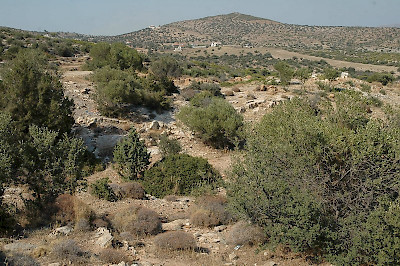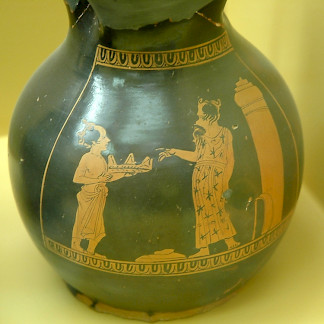Laurion
Q3314937Laurion (Greek: Λαύριον): area in southeastern Attica, famous for its silver mine.

Situated just north of the port of Cape Sounion and some thirty-five kilometers southwest of Athens, the mines of Laurion were quite easy to reach. They are most famous for producing silver, but this ore is usually found together with other minerals, like lead and copper. However, the silver was what made Laurion famous: the proverbial "owls" of Athens, as the coins were named, were made of silver from the mines in southeastern Attica.
Because the site was easy to reach (although the mining itself was dangerous and left to slaves), the ores of Laurion were already used in the Neolithic age, in the sixth millennium to be precise, when metal working was invented on the Balkan Peninsula. However, the real exploitation started during the tyranny of Pisistratus in the mid-sixth century BCE.

In the year 483/482, a vein of silver was discovered. Under normal circumstances, the state would have given every citizen a sum of money and would have leased out the mining rights, but the Athenian statesman Themistocles was able to convince his fellow-citizens to use the silver to build two hundred trieres.note Although ostensibly meant to bring a long-lasting war between Athens and Aegina to an end, the new navy was in fact intended to oppose the fleet of the Persian king Xerxes; because the bridging of the Hellespont and the canal through the Athos had made it obvious that the Persians were coming, the Athenians understood that they needed a navy. The naval battle of Salamis was essentially won by the slaves of Laurion.
In the Decelean War (413-404 BCE), the Spartans built a fortress in Decelea in Attica, where they received Athenian slaves who had ran away. According to Thucydides, no less than 20,000 slaves preferred serving Spartan masters to working for the Athenians.note Many of these runaways must have been from Laurion.